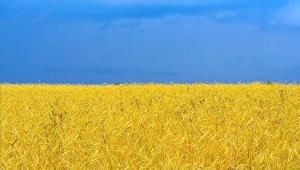


(Posted on 28/02/22)
The geopolitical tensions caused by Russia’s invasion of Ukraine have had an immediate effect on the global economy and markets. The Ukraine government has suspended commercial shipping from its ports and many privately owned grain storage and processing facilities in Ukraine also chose to suspend operations for the safety of their employees. Ukraine and Russia combine for about 30% of global wheat exports and 20% of corn exports annually. There will be lasting implications for commodities, energy policy and the energy transition.
The world’s dependence on Russia for certain commodities cannot be overstated, from gas, coal, oil, iron ore, aluminium, platinum group metals and zinc to copper, lead, petrochemicals and fertilisers. Many major international oil and gas companies, utilities and miners are invested in Russia.
Multinational agricultural companies with facilities in Ukraine suspended operations once the Russian military started pushing into the country in the early morning hours of 24 February.
Having to replace Russian coal volumes would result in a price shock to global coal markets and a coal shortage in Europe. Russian coal accounts for roughly 30% of European metallurgical coal imports and over 60% of European thermal coal imports. The primary issue with replacing Russian coal exports in Europe is its reliance on Russia’s particular quality of coal.
Coal-fired power currently accounts for around 14% of Europe’s generation mix. The impact on European power markets from a Russian coal shortage would not be as significant as gas. Crucially, though, Europe may not be able to depend on coal plants to make up for gas-fired generation losses.
Ukraine has few metal extraction and processing production facilities of scale, so the disruption to production will have a relatively small impact globally. Ceasing the output and export of certain commodities, such as aluminium, platinum group metals and iron ore, however, would have a disproportionate impact, as markets are already under supply pressure.
Of greater consequence are any limits on the ability of Russian producers to import raw materials to or export finished products from Russia. Another concern is whether counterparties are willing or able to transact with their offshore entities. As sanctions ratchet up, any metals and mining companies whose shareholders have links to the Kremlin are at risk.
The National Grain and Feed Association (NGFA) has applauded Senator Deb. Fischer’s (R-Neb.) reintroduction... Read more
Anglo American plc and Teck Resources Limited have received regulatory approval from the Government... Read more
The Rhodes Ridge Joint Venture has approved a $191 million (A$294 million) (Rio Tinto share $96 million... Read more
Trafigura Group Pte Ltd, a global leader in the commodities industry, has announced its financial results... Read more
Rio Tinto has successfully produced the first copper from the Johnson Camp mine in Arizona using its... Read more
The American Soybean Association’s World Initiative for Soy in Human Health programme and the... Read more
Karlka Nyiyaparli Aboriginal Corporation (KNAC) Registered Native Title Body Corporate and Rio Tinto... Read more
OCI Global, a leading global producer and distributor of nitrogen products has announced that it has... Read more
In December 2024, SSAB was granted a permit by the Land and Environment Court at Umeå District... Read more
The President of the Republic of Guinea has joined project partners WCS1, Baowu, Chinalco and Rio Tinto... Read more